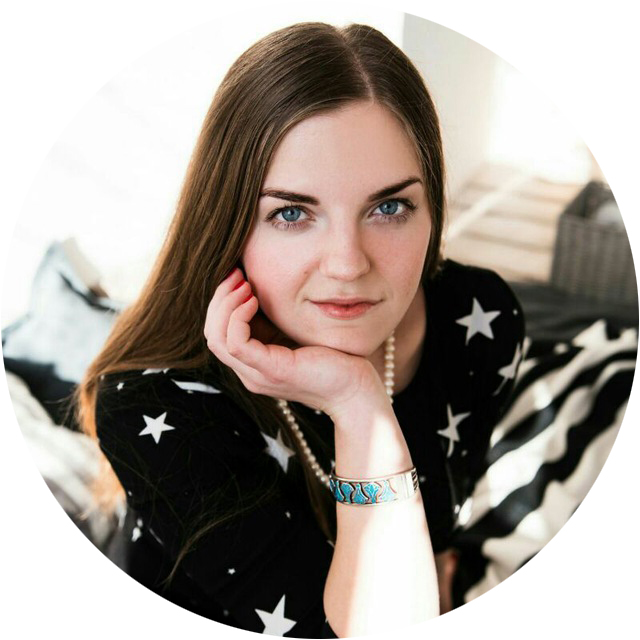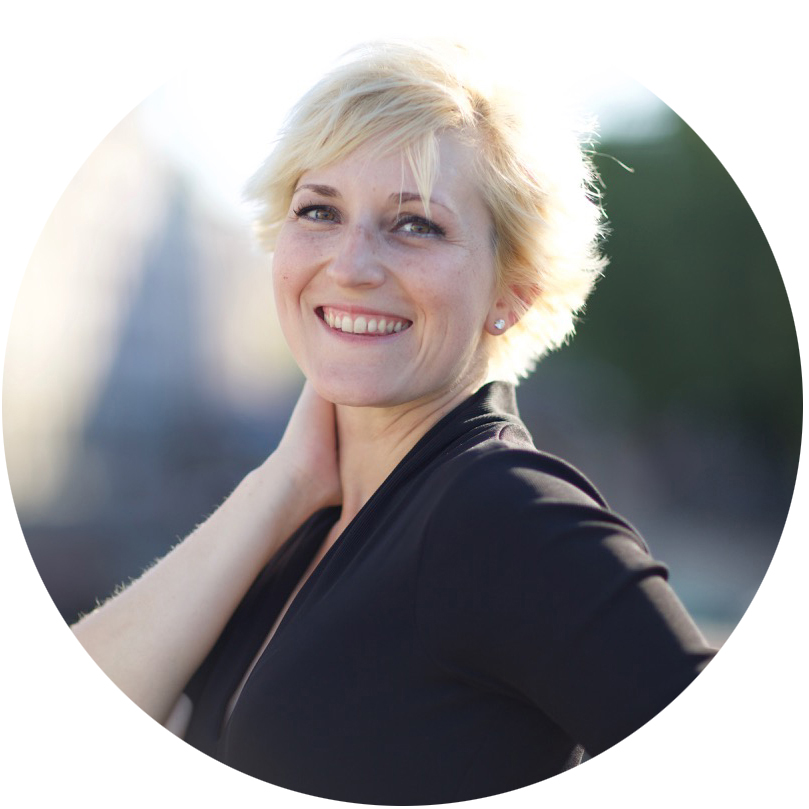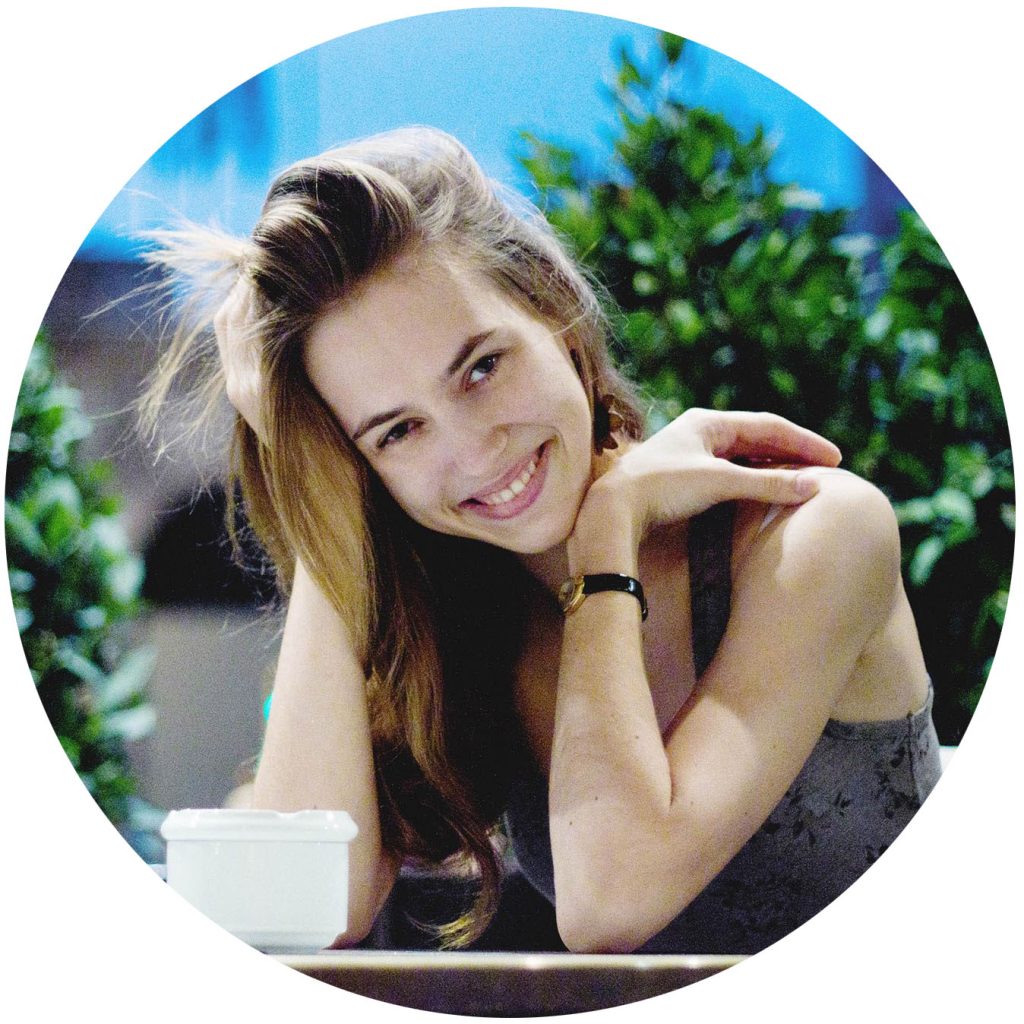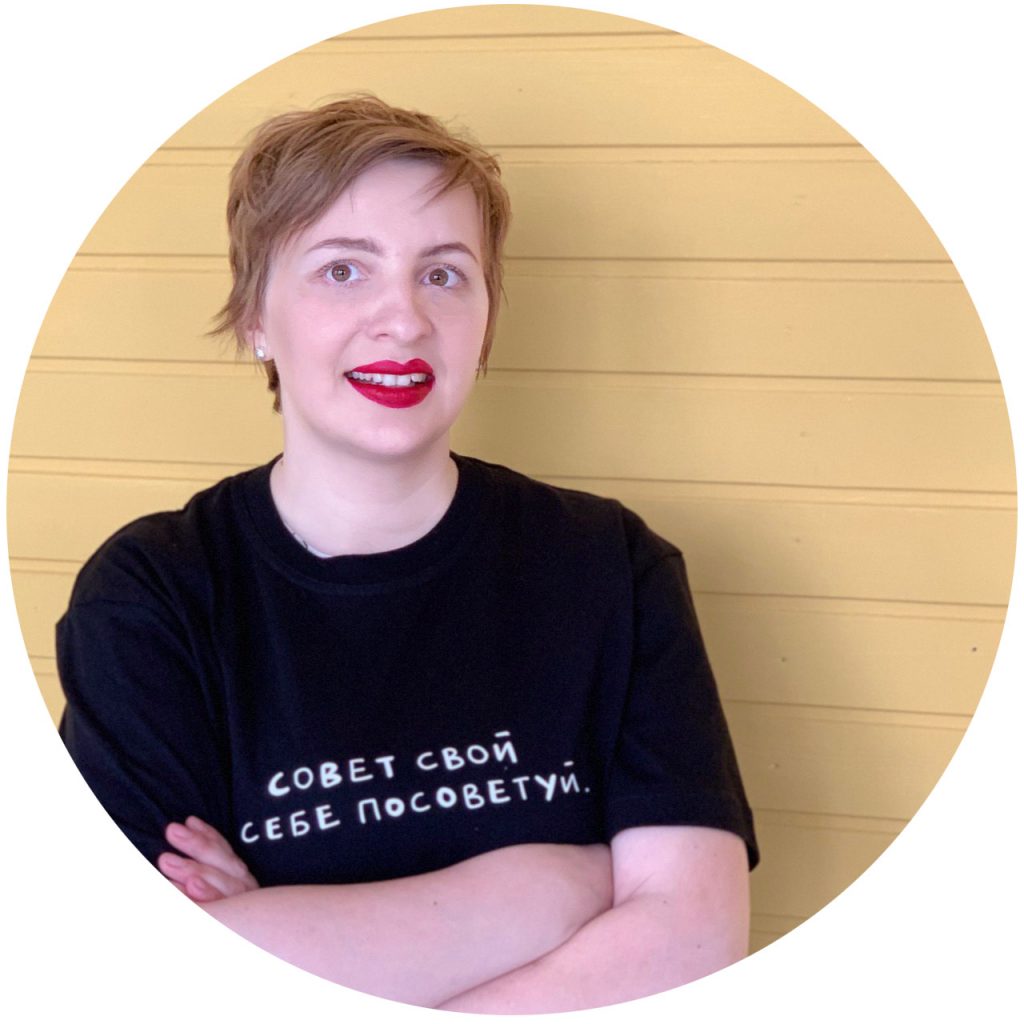The Office launched in June its Woman Playlists programme, which abides by the «Women for Women» principle. Moreover, the programme has been conceived under the playlist format, i.e. one is free to choose workshops, trainings or lectures picking them from a general list and thus creating a customised learning curriculum.
The first playlist entitled «I am a Leader!» was about the innermost stamina, personal boundaries and self-assertion. The second one, «Local Community Leader» is about collaboration and community engagement.
As the training process progressed, an idea came about to make the third playlist «Women for Women» where the participants would be able to share their expertise or skills and inspire each other.
The programme is still on-going with more attractive playlists ahead. Yet, we have made up our minds to have a word with the first three playlist attendants about women’s solidarity, safe and secure space or online learning. We are curious to get an understanding what has served to them as an inspiration to go through almost all the workshops and videos, while nearly all the classes were optional.
Stanislava

Stanislava is the Viciebsk YMCA Council Chairperson and a co-founder of the civic initiative Zadvizh-ka. Besides, she teaches a socially responsible management course.
– It is not by chance that I have opted for the Woman Playlists course. Everything the Office does means quality, values and knowledge to me, – says Stasia. – The mere fact that I as a Women for Women playlist speaker have been sent by the Office its Non-Discrimination Policies is a self-evident one.
This is how it happens in our lives: when an organisation cooperates with a female or male expert, the person in question becomes during the training period a face of the organisation. And, in fact, the organisation can be held responsible for the speaker’s statements. I have chalked up, the policy life hack, by the way. Now, we are working at our entity on inclusivity policies.
The woman playlist programme has inspired me by the safe and secure space idea with all the trainees and experts being female. Every now and then I keep on hearing that the civil sector women are not pro-active. Although when one takes a look at the organisation, initiative and volunteer movement line-ups, the statement becomes shaky, in the least.
Voĺha Lanieŭskaja’s assertiveness (human ability to avoid any external influences or assessments and to regulate independently own conduct and to be responsible for it – Editor’s note) workshop has appealed to me a lot. Quite a few times I have confronted my efforts’ depreciation. Take, for instance, volunteer work. It is often used as a resource with no desire involved to build up long-terms relations. And if there is anything you don’t like – you are free to go.
By the way, I’m the kind of person who is difficult to dismiss by saying «No». The workshop has taught me one crucial principle: one can always say «No» without explaining the underlying reasons. To be honest, when I refused in the past to do any work, I could take a while providing justifications. Now I’m trying to understand myself better and realize that «I cannot do everything with passion and that is normal».
Thanks to this approach a clear understanding is formed rapidly that apart from work, public engagement and helping out others one must have some time to be left for oneself and rest, because it is the only way to remain part of the resource and to protect one’s mental health.
Maryja

For three years now Maryja has been living in Germany, working for an organisation for the rights of persons with disabilities and taking a master course in her major Education for Sustainable Development. She has plans underway to stay abroad for some time after her studies are over and then, perhaps, to come back to Belarus.
– I’ve been greatly inspired by the programme’s idea of female support and sorority, or sisterhood. A special credit has to be given to a Telegram chat, where all the course attendants can communicate now, exchange information and share expertise.
From our early childhood we are inoculated with an internal misogyny feeling: no women’s friendship allegedly exists, your female friends will for sure woo away your boyfriend and only men can become experts, while a woman expert can only specialise in something like cooking.
Besides, the online format appealed to me very much. Staying in another country, I could have hardly attended any Minsk workshops. While working in this way I have, as a matter of fact, passed through all the three playlists. And, what matters to me a lot, I could feel implicated in the events rolling out in Belarus.
A major benefit has been provided by the format mix: certain assignments needed an obligatory presence, whereas part of the workshops was recorded, which meant they could be accessed at any time; besides, we had a format in the shape of useful article, website or video digests.
A visual design workshop hosted by Valieryja Vaŭkahonava is stuck in my memory. Within a one-hour-long period she demonstrated that with no special skills a million-dollar visual can well be prepared. Besides, I remember vividly a Maryja Jazionak workshop on the UN human rights protection mechanisms – I am still literally shocked how many useful and attractive things are there, of which we are ignorant.
I have also conducted an environmental friendliness workshop within the Women for Women playlist. I’ve been enormously inspired by the format, where every participant could share her expertise in a comfortable and friendly milieu. Moreover, it is cool when we all have such different experiences – it is encouraging to develop totally diverse vectors of our personalities.
Maryna

Maryna lives in Geneva and works for a human rights organisation. She readily admits that she lacks communication with active and self-motivated women. Therefore, the Woman Playlists programme has provided to her a major benefit during the strict quarantine and COVID-19 pandemic period.
– As soon as I saw the programme enrolment announcement, the very first though to cross my mind was: «Oh, how great, even while staying in Geneva I can remain on the same page with terrific Belarusian women».
Yes, I am a feminist, which, definitely, does not mean that I do not like or value men. Simply sometimes it is vital for women to stay in a safe, secure and comfortable environment. And the programme has enabled all of us to feel the safety and security. Besides, we have had some training sessions dedicated to very delicate topics like assertiveness, internal self-(in)confidence or co-dependence, or the topics fit for a more comfortable discussion exactly among women.
Both Geneva and Barcelona, where I used to live before, stage behind-the-closed-doors events for women, only. Men are sometimes offended by the «No Entry for Men» posters. But what matters is getting an understanding that the approach is in place not to hurt men, but to create a comfortable setup for girls.
Many topics we have discussed during the women playlists used to interest me a long time ago, too. But the personal branding has come out as a revelation. Previously the topic seemed to me to be a good fit only for business women who take their businesses in earnest, indeed. Yet, it turned out to also describe me, because it equally touches upon the ground of ‘who I am and how can others see me».
One more workshop to have impressed me very much was – IamRemarkable. It was hosted by Maryna Korž. I have been dealing for quite a while with the self-presentation and «imposter syndrome’ themes, which is why I joined the workshop with interest, but without an expectation to learn anything new.
The workshop was used as an opportunity to discuss how men and women submit their CVs to apply for the same job. A woman, as a rule, would send her CV only in case she complies with 100 per cent of the relevant requirements, whereas men would send their CVs if they meet at least 50 per cent. Yet, the outstanding issue lies elsewhere: if the woman is hired to the position, it would mean that the job would not promote in any way her professional development. The woman, to put it in plain terms, would have nowhere to grow. And this is something to have stunned me most of all.
What has encouraged me to go through the playlists one by one? The feedback. When I completed my assignments, I always received a polite, detailed and inspiring response from the expert. It served as a stimulating motivation to go on farther.
Voĺha

Voĺha is an Ecoidea.by editor and a FemFM podcast co-host. She does believe that the playlists provide an excellent opportunity to become more confident for those who typically are unable to reach the live events for any reasons such as time shortage, long and tricky way to Minsk with connections, no one to take care of kids and house and many more.
– I myself am now in such a situation – I have been part of the programme with my baby daughter who is just a few months old by my side. If it was not for the flexible-schedule playlists, I wouldn’t have learned a half of what I did learn.
The Woman Playlists programme has made me feel at last the supportive environment with no wrong answers or idea criticisms. I was inspired by the image work workshop presented by Valieryja Vaŭkahonava. I had enough cheek after it to go as far as making a few posters all by myself with no special drawing or page proof background.
A pleasurable part of the programme for me was that women themselves can initiate meetings or workshops and share their knowledge and expertise. This is why I made up my mind to share my podcast creation expertise, which succeeded thanks to the Women for Women playlist.
Why do I see the programme as a significant one? Firstly, it is about a possible self-confidence battery recharging chance provided. The playlists have been structured to cover the ‘pain points,’ take, for example, the ‘imposter syndrome’ and assertiveness webinar.
These are exactly the ‘muscles’ that, in my opinion, deserve being constantly built up. This is how we learn to value ourselves better without forgetting about our merits and to reject any ideas brought in by other people as to ‘what a woman should be like.’
Secondly, the project has enabled me to meet other active women from various walks of life or geographic areas. I enjoy very much building such ‘networks,’ as well as find it extremely useful, since I write news stories about leader women and have a vested interest in involving more women experts in preparing my publications.
I was not taken aback at all by the female nature of the playlists; on the contrary, I feel how much more audacious and active women are with no ‘correct’ male opinion by their side (such opinions are usually too shrill to make any alternative ones audible).
And, thirdly, the playlist handling principle was a convenient one. I used to listen to them whenever I found it fit and under the circumstances actually on the ground at that time, as well as in the order and rhythm I found personally palatable. This free operational framework has turned up to be a huge strength.
I have repeatedly encountered discrimination with particularly many examples being concentrated in the professional sphere. I had gained the clearest understanding of the fact when studying at the Belarusian State University’s Faculty of Journalism. Boys were worth their weight in gold, while girls were frequently told that journalism was a tough men’s job and that study and career did not matter as much as finding a good husband.
The same kind of atmosphere also impregnated my editor’s office where I began my professional career. A talented female photographer was not hired full-time on reasons that ‘she was not a lad and would not be able to carry a heavy gear backpack.’ The funny thing is that all the same she had to carry the backpack when running second-rate editor errands, but for less money, because she worked part-time.
Unfortunately, all these stories are not rare. This is why such women’s programmes serve exactly to add self-confidence, to promote our speaking ‘in a louder voice’ and to realise that our competences can and must be upgraded and advanced without taking notice of other people’s opinions or lack of acceptance.
More details on the Woman Playlists programme
The Woman Playlists programme is provided through the international Cities of Learning platform. Following the results of the first programme recruitment in June and July 2020:
- All in all, within a week, 163 requests to take part in the programme have been received, including 47 per cent from Minsk, 55 per cent from other Belarusian communities and 8 per cent requests from 11 other countries, among others from Belarusian women and girls studying or working in those countries.
- At least 77 women have developed their competences related to personal leadership: self-presentation, self-confidence, time management, creativity, etc. in the «I Am a Leader» playlist.
- At least 31 women have developed their local community leadership competences like problem definition and objective setting, planning, organising volunteer work, etc. in the «Local Community Leader» playlist.
- 10 women have upgraded their competences in promoting themselves as experts and those they work with through workshop initiation and arrangement for other female participants in the «Women for Women» playlist.
- 30 women have on more than one occasion joined the events through social media ads or through other information channels.
The programme is implemented by the Office for European Expertise and Communications in partnership with the International Not-for-Profit Organisation Pact with support from the U.S. Agency for International Development (USAID).


